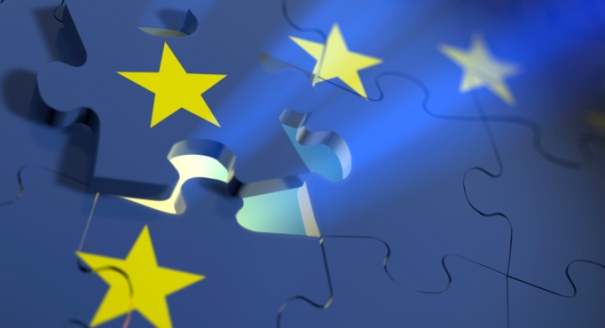Every week a selection of leading experts answer a new question from Judy Dempsey on the foreign and security policy challenges shaping Europe’s role in the world.
Giovanni GreviDirector of FRIDE
To the extent that foreign policy is driven by events, 2013 has been a tough ride. The EU’s neighborhood has loomed large on its radar screen. The year started with the French intervention in Mali and is ending with turmoil in Ukraine. Meanwhile, the military staged a coup in Egypt, and the war in Syria continues unabated.
Europeans have failed to anticipate many of these events, and their response has often suffered because of differences among the member states. But the broader point is that carrying out foreign policy is getting harder and harder. In a world of diffused instability and growing competition, success is elusive for all major powers, not just the EU.
This makes it all the more important to take a step back from events and focus on long-term strategic priorities. On that score, there has been some encouraging progress for EU foreign policy in 2013. The Serbia-Kosovo deal marked an important step in these countries’ journeys toward joining the EU. The interim nuclear agreement with Iran, if fully implemented, might pave the way for reducing tensions across the Middle East. And, despite many challenges ahead, the launch of negotiations on a transatlantic trade and investment pact points to an upgrading of the EU-U.S. partnership.
The mixed experience of 2013 shows that becoming more strategic and coping with emergencies—in other words, vision and practice—need to go hand in hand.
Ian LesserExecutive director of the Transatlantic Center, the Brussels office of the German Marshall Fund of the United States
By many measures, 2013 has been a notably successful year for EU foreign policy. But that should not be confused with a more strategic approach, which remains elusive.
European diplomacy can claim a striking success in brokering a deal between Serbia and Kosovo. The interim agreement on Iran’s nuclear program also owes a good deal to the role of the EU’s foreign policy high representative, Catherine Ashton, and a concerted European policy on sanctions. In Mali, France has taken the lead on securing what are essentially European security interests in the Sahel. In the continuing saga of Ukraine—a less successful example of European diplomacy—the EU is nonetheless the central actor, and offers the key prizes for Ukrainian association with the West. From Africa to the Gulf, and across Eurasia, the EU is playing an active and consequential role.
Yet most of this engagement is reactive rather than strategic in the true sense of the word. It is certainly not “grand strategy,” bringing together political, economic, and military instruments in pursuit of long-term goals. But then, very little foreign policy making on either side of the Atlantic has—or can be expected to have—this quality, especially in a period of domestic travails.
Gianni RiottaMember of the Council on Foreign Relations
No. Strategy needs focus, and the EU is out of focus.
The EU wasted most of 2013 waiting for the German federal elections. When they arrived, the country’s political landscape was only marginally altered. So the EU plodded on, united in sticking to its traditional script, but divided by reality. Events in Syria and the NSA surveillance scandal left Europe more “national” than ever in recent times. London, Paris, Berlin, Rome, and Madrid were all at the piano, but all were playing a different tune.
The only consolation prize for the EU is seeing other powers tantalized by the same missed opportunities. China wasted time and prestige on a petty feud with Japan over the disputed Senkaku/Diaoyu islands. Russia bet its money on obsolete nuclear weapons, à la Brezhnev. And the United States lost face by secretly gathering metadata while lecturing others on internet freedoms.
2013 was not a strategic year at all. Let’s see if Miss Strategy has a better 2014.
Paweł ŚwiebodaPresident of demosEUROPA
In 2013, the EU has had some strategic outcomes but not a strategic policy.
Consistency has paid off for Europe this year. The launching of trade and investment talks with the United States was the result of the EU’s longtime perseverance. They are nothing short of strategic. The interim deal with Iran on its nuclear program belongs in the same category, and it was the EU that kept the communication channels open among the negotiating parties. It was not magic, but a change in the West’s position to accept a limited degree of uranium enrichment by Iran, that yielded this result.
The EU has also achieved greater cohesion in its policy toward Russia and the Eastern Partnership countries. That gave the EU a good enough reason for a brief self-congratulatory episode. But unfortunately, cohesion alone is no guarantee of success. For the EU to be strategic toward both Russia and Ukraine, it will have to stick to its principles and values, but also become much more responsive to developments on the ground.
Finally, there are miserably few signs of strategic engagement in Asia. Instead, there is bewilderment that conventional interstate tensions may be returning with a vengeance in the region. The EU is earnestly hoping that these strains will not intrude on its own geo-economic interests.
All in all, where the EU has been successful in 2013, it has been the result of wise policy choices and strong institutional leadership. Unfortunately, the EU’s list of no-go areas remains too long.






